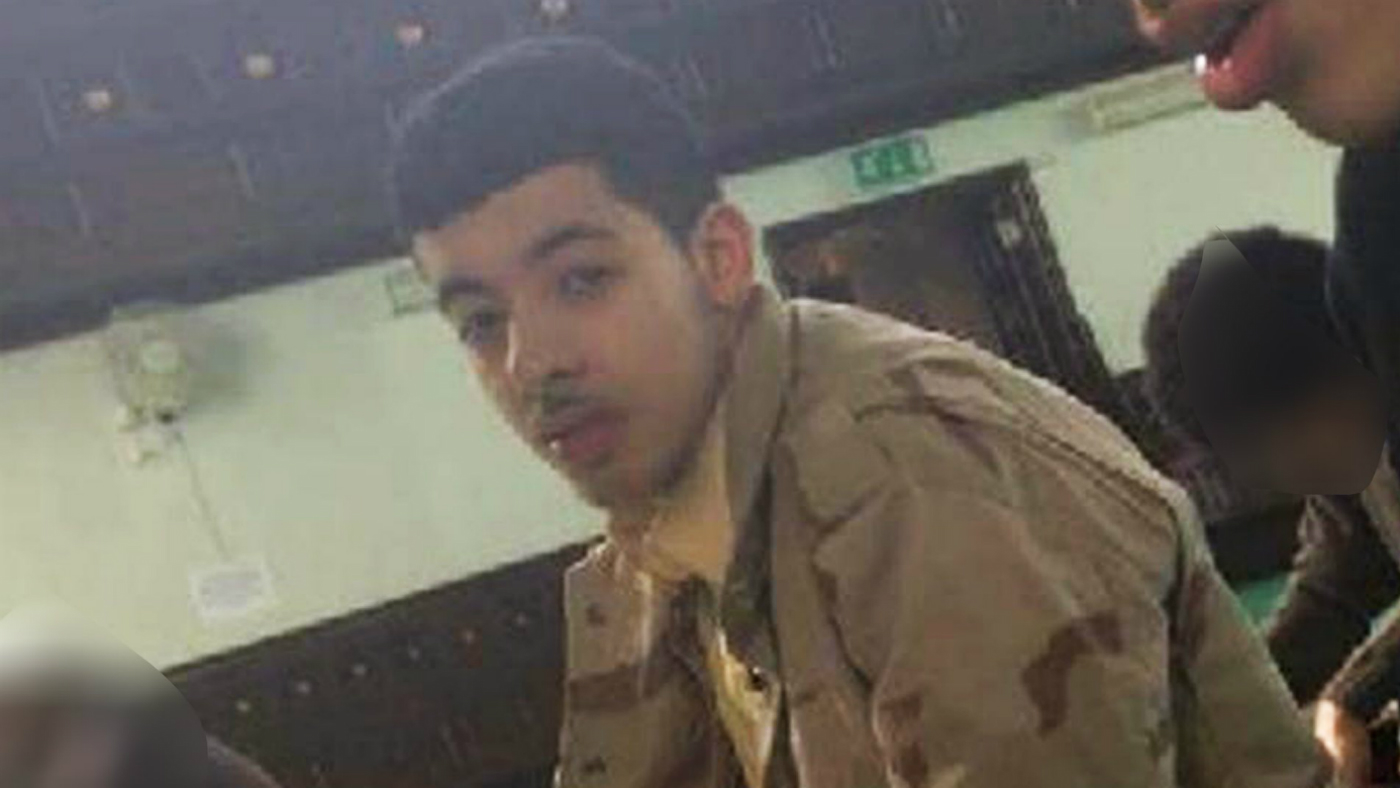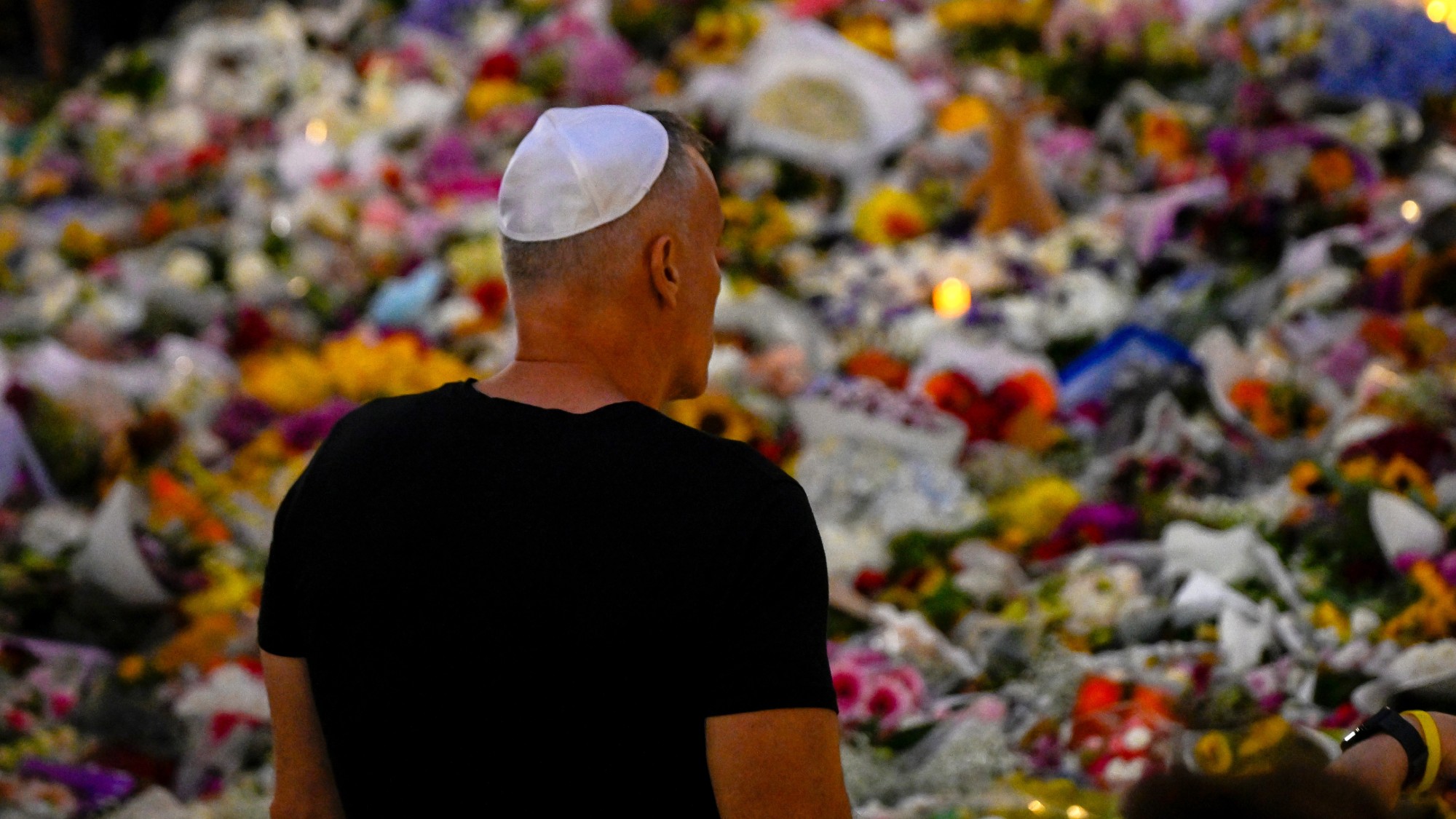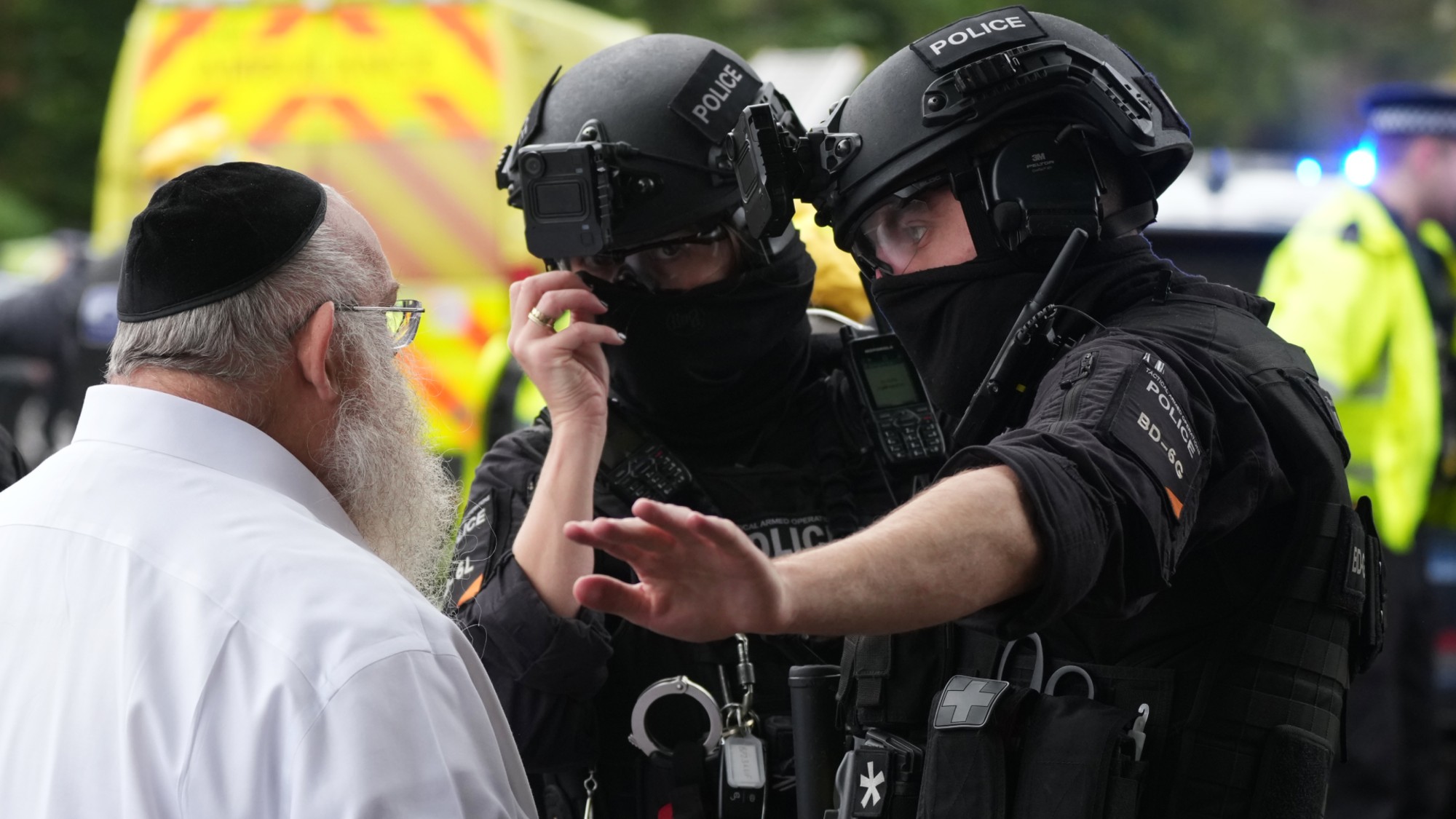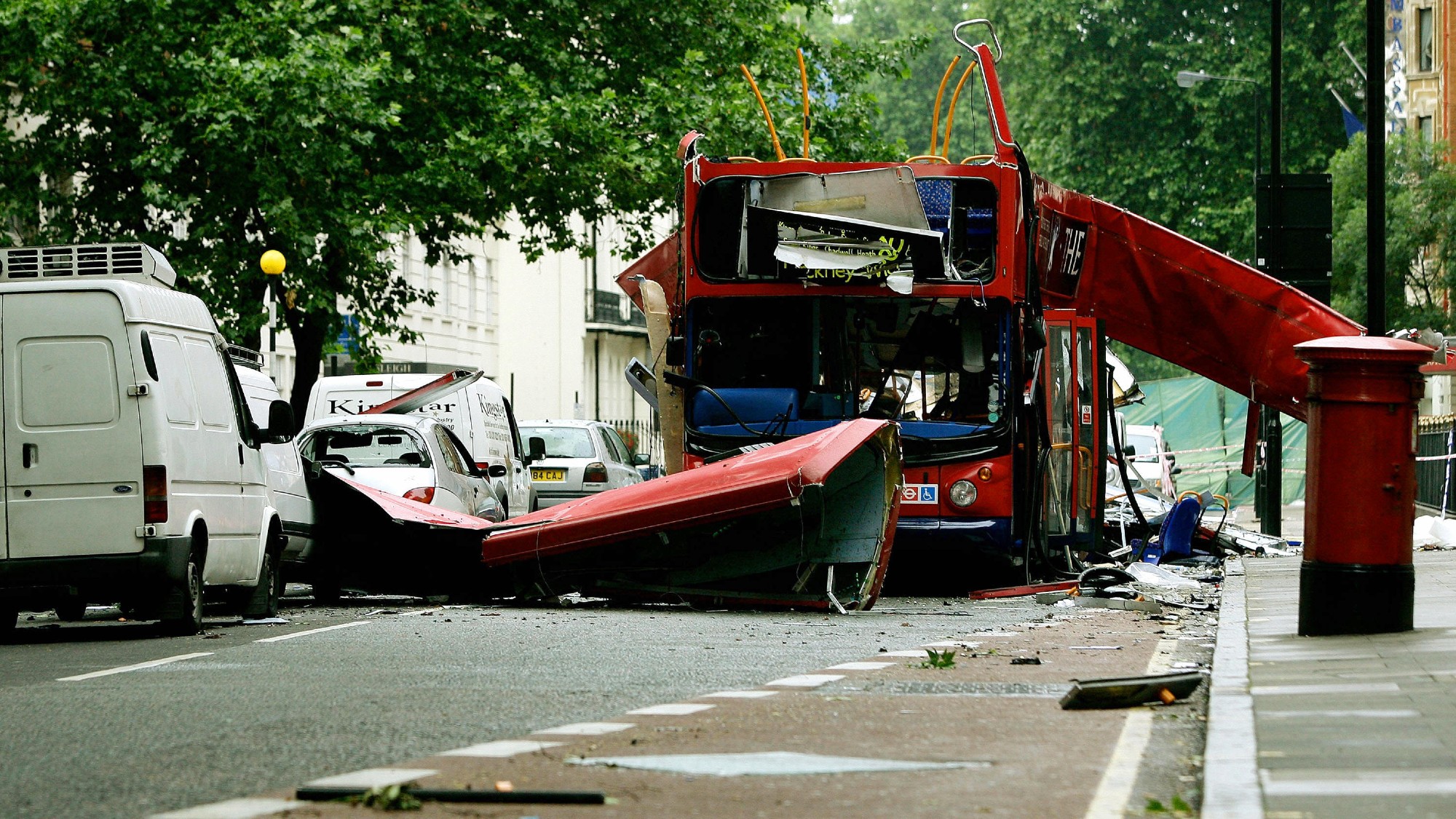Manchester Attack: What we know about suicide bomber Salman Abedi
British-born attacker believed to have visited Libya and Dusseldorf prior to bombing Manchester Arena

A free daily email with the biggest news stories of the day – and the best features from TheWeek.com
You are now subscribed
Your newsletter sign-up was successful
The sister of Manchester suicide bomber Salman Abedi believes he carried out the attack because he wanted revenge for airstrikes on Syria.
Jomana Abedi said in an interview with the Wall Street Journal that her brother was kind and loving and that she was surprised by his actions in Monday night's terror attack.
“I think he saw children - Muslim children - dying everywhere, and wanted revenge," she told the paper.
The Week
Escape your echo chamber. Get the facts behind the news, plus analysis from multiple perspectives.

Sign up for The Week's Free Newsletters
From our morning news briefing to a weekly Good News Newsletter, get the best of The Week delivered directly to your inbox.
From our morning news briefing to a weekly Good News Newsletter, get the best of The Week delivered directly to your inbox.
"He saw the explosives America drops on children in Syria, and he wanted revenge. Whether he got that is between him and God.”
Here's everything we know so far about the 22-year-old Manchester Arena attacker.
What's his family background?
Abedi was born in 1994 in Manchester, the second of four children - three boys and a girl.
A free daily email with the biggest news stories of the day – and the best features from TheWeek.com
His parents, security guard Ramadan and his wife Samia Tabbal, were part of a community of Libyans who found refuge in the city after fleeing Muammar Gaddafi's regime.
Abedi's family lived at more than one address in the city of Manchester, including a property at Elsmore Road, in the Fallowfield area, that was raided by police following the attack.
Abedi was educated in local schools before studying business management at Salford University, although he later dropped out.
Following the overthrow of Gaddafi, the family reportedly spent much of their time in Libya, with Abedi and his 23-year-old brother Ismail usually remaining in Manchester.
However, Abedi is thought to have returned from a visit to the country days before carrying out Monday's suicide bombing, which left 22 dead.
"He went to Libya three weeks ago and came back recently, like days ago," a former classmate told The Times.
Police are now investigating his links in the country, which is home to many militant Islamist groups.
How was he radicalised?
A family friend told the Times he believed Abedi was "radicalised by mosques in south Manchester" rather than jihadis abroad.
"Many Libyan youths started to become radicalised after 2011," he said.
It is also known that Abedi travelled to Germany at least twice, including a visit to the financial city of Frankfurt in 2015.
Sources in the German intelligence services believe Abedi was in the German city of Dusseldorf "sometime around four days before the bombing".
According to the German magazine Focus, Abedi was not apprehended by German authorities when he flew into the country because he was not on any observation list of suspected Islamists.
"News of his presence in Germany has raised suspicions that he may have had contact with Islamist networks there, and received logistics training from them," says The Guardian.
Dusseldorf, in the state of North Rhine-Westphalia, is where Anis Amri, the Berlin Christmas market attacker spent a lot of time, the paper adds.
Was he working alone?
Police have said it is "very clear" there is a "terror network" at work that is likely to have helped the Manchester-born attacker.
Sky News reports that Abedi had links to an Islamic State cell which operated in Manchester, and that he personally knew one of the terror group's most prolific recruiters in the UK.
A Libyan security official told Newsnight that Salman Abedi called the Libyan capital Tripoli to speak to his mother shortly before carrying out the Manchester bombing.

Ahmed bin Saleh, a Tripoli police spokesman, also told the programme that when they went to arrest Salman's younger brother, Hashem following the attack in Manchester, Hashem allegedly told them: "I have ideology with my brother, I knew everything about my brother, what he was doing there in Manchester."
Salman's father Ramadan has also been arrested in Libya, while in the UK Salman's older brother Ismail has been in custody since the day of the attack.
In total, eight people have now been detained in the UK after two more men were arrested in Greater Manchester. There were also raids and arrests in Wigan and Nuneaton in Warwickshire.
What have those who knew Abedi said?
A neighbour in the Whalley Range area of south Manchester, where the Abedi family lived, told the Daily Telegraph she noticed Abedi "acting strangely" in recent months, including chanting Arabic prayers loudly in the street.
An imam at the mosque told the Guardian about an incident in 2015 that suggested Abedi's jihadist sympathies were already formed then.
Mohammed Saeed said he had been giving a sermon condemning Islamic State and Libyan terror group Ansar al-Sharia when "Salman showed me a face of hate."
He added: "He was showing me hatred."
A Muslim community worker also told the BBC that members of the public called the police anti-terrorism hotline warning about Abedi's extreme and violent views several years ago.
They had been worried that "he was supporting terrorism" and had expressed the view that "being a suicide bomber was OK".
However some members of the local Libyan community expressed surprise that the young man they knew as a quiet and withdrawn son of a devoutly religious family was responsible for the attack.
"Friends remember him as a good footballer, a keen supporter of Manchester United and a user of cannabis," says the BBC.
"He is such an unlikely person to have done this," a family friend told The Guardian. He added that Abedi's father would be "distraught" at his son's actions.
Ramadan Abedi is a well known figure at Didsbury mosque, where he used to sing the call to prayer.
"He was always very confrontational with jihadi ideology," the family friend added. "The family will be devastated."
-
 9 products to jazz up your letters and cards
9 products to jazz up your letters and cardsThe Week Recommends Get the write stuff
-
 AI surgical tools might be injuring patients
AI surgical tools might be injuring patientsUnder the Radar More than 1,300 AI-assisted medical devices have FDA approval
-
 ‘Zero trimester’ influencers believe a healthy pregnancy is a choice
‘Zero trimester’ influencers believe a healthy pregnancy is a choiceThe Explainer Is prepping during the preconception period the answer for hopeful couples?
-
 How the ‘British FBI’ will work
How the ‘British FBI’ will workThe Explainer New National Police Service to focus on fighting terrorism, fraud and organised crime, freeing up local forces to tackle everyday offences
-
 How the Bondi massacre unfolded
How the Bondi massacre unfoldedIn Depth Deadly terrorist attack during Hanukkah celebration in Sydney prompts review of Australia’s gun control laws and reckoning over global rise in antisemitism
-
 Who is fuelling the flames of antisemitism in Australia?
Who is fuelling the flames of antisemitism in Australia?Today’s Big Question Deadly Bondi Beach attack the result of ‘permissive environment’ where warning signs were ‘too often left unchecked’
-
 Ten years after Bataclan: how has France changed?
Ten years after Bataclan: how has France changed?Today's Big Question ‘Act of war’ by Islamist terrorists was a ‘shockingly direct challenge’ to Western morality
-
 Arsonist who attacked Shapiro gets 25-50 years
Arsonist who attacked Shapiro gets 25-50 yearsSpeed Read Cody Balmer broke into the Pennsylvania governor’s mansion and tried to burn it down
-
 Manchester synagogue attack: what do we know?
Manchester synagogue attack: what do we know?Today’s Big Question Two dead after car and stabbing attack on holiest day in Jewish year
-
 The Miami Showband massacre, 50 years on
The Miami Showband massacre, 50 years onThe Explainer Unanswered questions remain over Troubles terror attack that killed three members of one of Ireland's most popular music acts
-
 The failed bombings of 21/7
The failed bombings of 21/7The Explainer The unsuccessful attacks 'unnerved' London and led to a tragic mistake